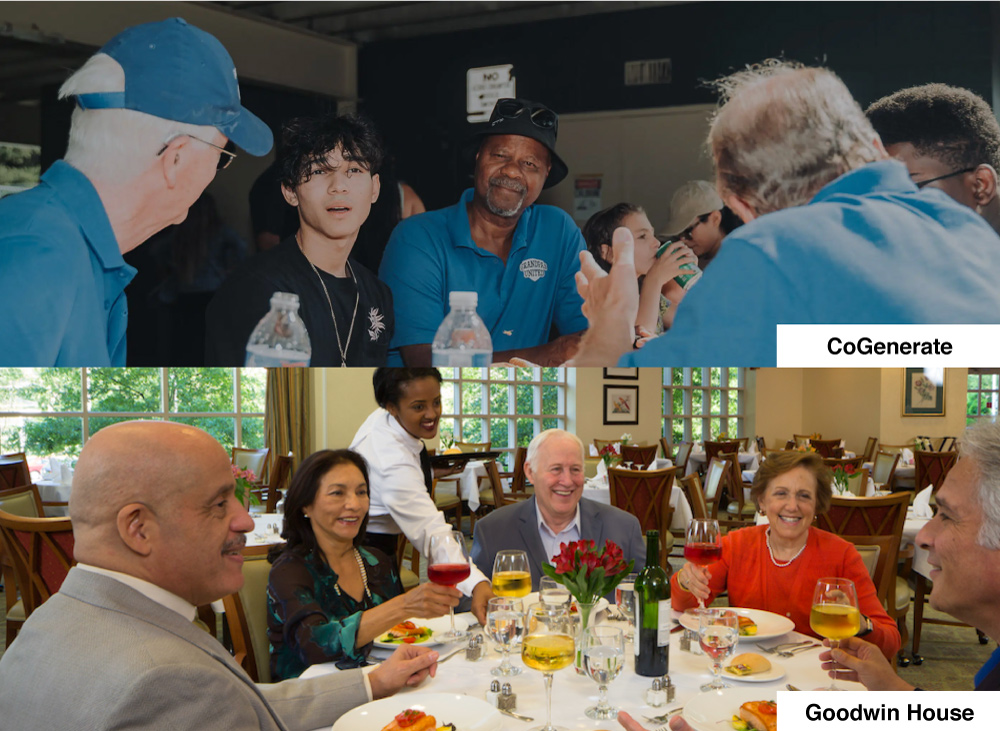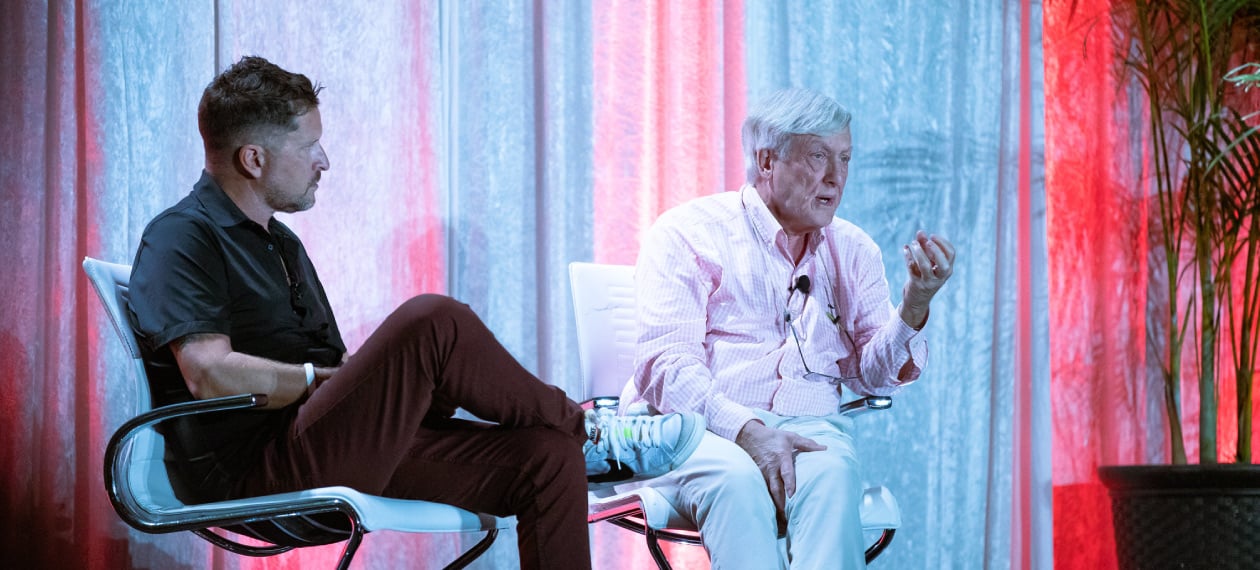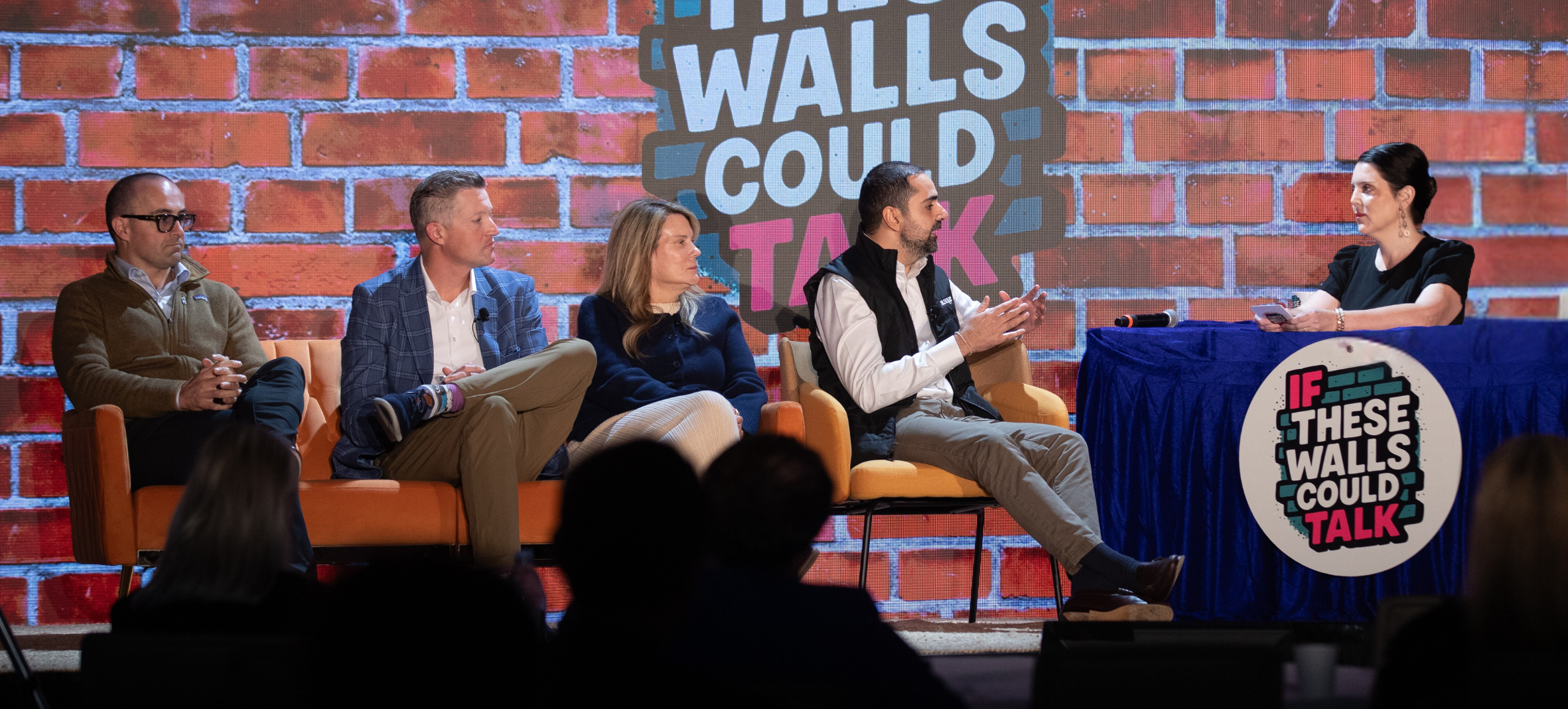When Bob Kramer looks back at the history of senior living, the co-founder and strategic advisor at NIC and principal of Nexus Insights sees two distinct generations. The first, from 1960 until 1990, was driven by the growth of nonprofit board-and-care homes, entrance-fee continuing care retirement communities, and then traditional nursing homes spurred by LBJ's Great Society programs. "Between '65 and '82-'83, half of the nursing homes out there today were built," he said at the Senior Living Innovation Forum last month in the Bahamas.
The second generation, from 1990 until 2020, saw the proliferation of private-pay senior housing, whether independent living, assisted living, or memory care. "What drove things in the '90s was singularly the Boomer daughter," Kramer explained. "The Boomer daughter was in the workforce in record numbers, and when she had an issue with mom, dad, or in-laws, she didn't want to give up the job that she had that defined who she was, and she'd spent a whole career to have. But she also couldn't live with the guilt of putting mom in an old-style institutional nursing home.”
Then came Covid-19 and with it the second generation’s demise. Now we’re in the dawn of a third generation, one that Kramer believes will look very different than the last two – even if it’s still shaped by that same Boomer daughter. “That product represents, to Boomers, their parents' notion of retirement and of aging,” he said, a notion where they can no longer live the lifestyle they choose. “And they don’t want that.”
During the conversation, Kramer outlined the future of senior living and how it will be transformative for providers, workers, and consumers.
5 Key Leadership Traits
A new generation of senior living calls for a new generation of leadership. As Kramer pointed out, 70% of providers in the nonprofit sector have said they expect to bring on new CEOs in the next three to five years; for-profits are also anticipating a significant degree of churn. What will the industry need from its future leaders? For Kramer, the answer is fivefold:
Personal depth.“Somebody that's humble and secure, that's not a know-it-all or do-it-all but learn-it-all, and can empower and collaborate with their employees to maintain agility, which is key.”
Operational savvy. "Which doesn't mean being the expert in each area of operations, but being secure enough to hire folks who are smarter than you in each functional area – and then knowing how to marshal them to be a team and turn them loose.”
Industry awareness. “You are going to have to be aware of the trends,” he said, especially when it comes to consolidation. “How do you avoid, on the one hand, being caught flatfooted with what's happening with the integration of healthcare into senior living – but on the other hand, not getting ahead of the tips of your skis and being into a value-based equation when value-based care is not there yet?”
Government smarts. The Covid-19 pandemic firmly established senior living as a vital part of the healthcare continuum. Kramer expects this will usher in a new era of regulatory scrutiny over private-pay operators that previously didn’t have to worry much about federal oversight. "You will have to have government smarts at both the state and the federal level, because housing and healthcare policy will be intertwined in ways you've never seen before," Kramer said. "It's going to ultimately be driven by governments concerned about their dollar expenditures.”
Mega-trend awareness. It’s not enough to stay abreast of trends within the senior housing industry: the next generation of leaders will have to keep a finger on the pulse of society at large. Kramer cited increasing consumer interest in transparency as a prime example. "How much longer are we going to keep our rates secret, believing we want the customer in the door so we can explain to them why we charge as much as we do?" he asked. "That isn't going to last very long, folks.”
Investing in Change
Kramer’s forecast raised an obvious question: Why does the senior living industry talk a lot about making changes (like price transparency) but rarely follows through? “We are, to a great extent, an exhausted industry,” he answered. "By that, I mean we're physically, emotionally, mentally and oftentimes financially worn out. One operator said to me, ‘I feel like my whole team is suffering from PTSD.’”
Under the weight of so many mounting pressures, from the staffing crises to negative public perceptions, it can be difficult to focus on long-term innovations in addition to short-term occupancy and NOI growth. But Kramer argued that now is the time to invest in change financially and philosophically.
“As a sector, we are really good at asking the questions that aren't the most important," he said. "The average resident moving into assisted living is going to be there for three years or less, and this is the last three years of their life. The most important question is, what matters the most to you? Because their healthcare and everything we do in this building should be geared around the answer to that question and our ability to provide that experience.”
Seeing Workers as Humans
If the future of senior housing depends on retooling the relationship between provider and customer, it also depends on retooling the relationship between employer and employee.
"Fundamentally, we have to move from what I would call a transactional relationship with our hourly employees to one based on a real human relationship," Kramer said. This means looking at workers not as "widgets" who perform a set of tasks during a shift but as human beings – many struggling to rise or stay out of poverty – whose concerns don't vanish when they step foot into the workplace.
He encouraged providers to take a cue from Goodwin Living in Virginia, where residents raised money to help nearly 100 employees obtain US citizenship (while tutoring them along the way). “It gave the residents a sense of purpose, it gave the employees a sense of connection to the residents, and it gave the community a reputation that they really care for their frontline," Kramer said. That produced a waitlist of job applicants for Goodwin Living.

Another solution to the staffing crisis is recruiting from what Kramer described as “the largest untapped workforce in America for the next 20 years.” As Encore’s Marc Freedman has observed, 50- to 75-year-olds are increasingly pursuing encore careers after they retire from their initial lines of work. "Retirement for boomers will be one part purpose, one part passion, one part paycheck,” Kramer said. “We can offer all three.”
Rethinking the Aging Experience
Kramer rounded out the discussion by fielding a few “Rapid Fire” questions.
First and foremost: Is it “seniors housing” or “senior housing”?
"I've given into the reality that it's going to be senior housing," he said. "If you call it senior living, you're saying, ‘I have what your parents wanted and what you don't want for yourself.’”
How about the National Investment Center for Seniors Housing & Care, which Kramer co-founded: Should we call it: “Nick” or “N-I-C”?
“Either one,” he answered. “But in the future, I believe NIC will become like AARP. Meaning you'll no longer know and you won't be reminded what the words stand for.”
Finally: Given that “Active Adult” is an unfortunate, ageist term, what should we call it instead?
Well, Kramer doesn’t know exactly. But to find the answer, he thinks providers need to reexamine the way they think about aging itself, and in turn the experience of aging they give their residents.
“We have actually been complicit in promoting a sense of reinforced helplessness,” he concluded. “We've got to change that. If we're champions of a new way of thinking about the aging experience – which is real – and therefore changing that experience, we'll be an aspirational setting rather than what I would call an avoidance setting. It's a key opportunity for us.”

Posted by
SLIF heads to Carlsbad!
The One of a Kind Retreat for Senior Housing Leaders.
May 31 - June 2, 2026 | Carlsbad, CA
Learn More









Comments